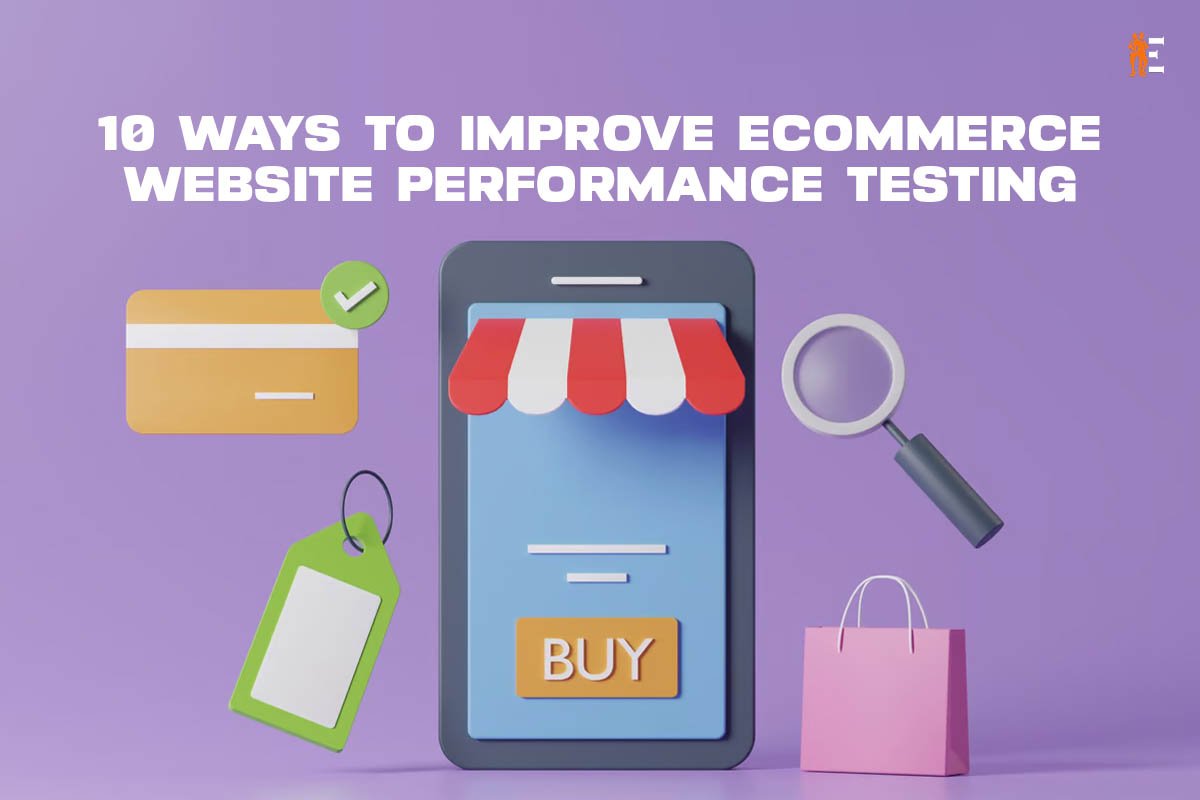Now, to the point! You opened an internet shop because you wanted to increase your income. If you’re currently making a ton of money, you probably aren’t interested in reading about strategies to boost your business and improve e-commerce website performance.
If you have an online store, you should read this post since it contains 10 useful hints for increasing sales. These suggestions are original; I have picked them up through my years of working in eCommerce, and nowhere else.
Unlike traditional stores, online merchants have to contend with customers from all over the world. Additionally, this leaves no opportunity for carelessness.
Here are 10 Ways to Improve E-commerce Website Performance Testing;
1) Target the Right Products
Some items are useless. Some products, like diapers, are sold at a loss in order to attract customers. Their production costs are high. They weigh a lot, so transporting them is difficult. Stores undercut their prices in the hopes that consumers would spend more on other, higher-margin items after they’ve drawn them in. The lesson here is that you can’t assume that any product will meet your needs and helps you improve e-commerce website performance.

You should be sure of the profit margins, the demand, and the level of competition for every product before stocking it in your business. If you’re thinking of selling a product, you should at least check Google to discover what the existing market is doing. It’s true that the chances of this happening to you are lower if you’re in the business of making a one-of-a-kind product or selling digital items.
2. Make sure your message is clear
Messy, poorly written content is the number one cause of lost conversions. Your website’s content is viewed by many. They check out your pictures online. People will pick up on your message whether you want them to or not. You’re hurting business if your ad doesn’t immediately convey, “This is it!” to potential customers.
Companies often contact firms like Clean Commit in search of ways to enhance the design and technical Ecommerce Website Performance of their website in the hopes of seeing an uptick in sales and conversion rates.
When advised that they need to first alter their text, customers often get perplexed. Spending money on a redesign is only worthwhile if the message is spot on. Be careful not to throw away potential earnings. Consult a skilled copywriter instead. No matter how much you pay them, they will give it back to you a hundred times over.
3. Tests, tests, and more tests
Your E-commerce Website Performance results will soar if you take the time to thoroughly test everything. To clarify, we recognize that this remark is not entirely clear. The best title for your homepage is unknown (even to you). In a similar vein, there are a million other factors that may influence how successful a website will be, from the quality of the photos used to the length of the page or the relevance of the information presented.
Extensive testing of all aspects of your site is the only way to know for sure whether you’ve got it correctly. Simple procedures exist for testing. There is no shortage of excellent resources, such as VWO, Google Optimize, and Crazy Egg.
Depending on the volume of your site’s visitors, most experiments will take several weeks to provide meaningful results. Due to the short time frame, only 26 tests may be conducted every year.
We suggest using a platform like Trello or Asana to compile a list of desired tests. Then, after every two weeks, you should write down your test findings, prioritize your list, and set up the next most critical test.
4. Superior Design Has Immeasurable Value
Though you should prioritize good writing above good design, the latter should not be neglected. Creating a very original user interface with moving components, gifs, strong colors, and prominent features isn’t always a sign that you’ve done it “correctly.”
Great design is seldom praised. Your visitor shouldn’t have to put in any effort. Instead, they should be able to browse for what they need, pick it up, and pay for it without interrupting their thoughts about what’s for dinner.
The conversion rate is likely to drop if you switch to a new design that is unknown to your customers & improve e-commerce website performance. The Clean Commit examples page has some excellent websites to look at if you’re curious about good web design.
5. Identify Successful Methods of Advertising
Generally speaking, paid search and social media advertising on Google and Facebook will provide the greatest results. They’re very sophisticated systems with fully developed AI at its core and a massive user base.
Conversion experts with clout, such as Julian Shapiro, advise just using Facebook and Google advertisements. Because of our mixed experiences with other platforms, we tend to agree.

To be sure, testing is the only way to find out what really works & improve e-commerce website performance. Startups like MailChimp were able to gain momentum using unconventional marketing strategies, such as podcast and billboard advertising.
When promoting with a limited budget, it’s best to use as many channels as possible. To get you started, here is a quick rundown: social media platforms such as Linkedin, Pinterest, YouTube, TikTok, Instagram, Facebook, Google, and Reddit.
6. Never Stop Networking
It’s important to provide Google with some kind of indication that your site is worthwhile. You may think of backlinks as that indicator. You can’t expect Google to bring more people to your site if you aren’t actively working to increase its link popularity and increase Ecommerce Website Performance.
The procedure of establishing connections is difficult. Your first order of business is to persuade other website owners to add a link to yours. In most cases, one must make some kind of financial or material contribution in return for this type of agreement.
If you want Google to bring you more traffic, it’s worth the effort, and you need to keep at it.
The best quality link-building resources are only a click away. Ahrefs and Moz are great places to start reading.
7. Opt for the Appropriate Piece of Technology
The technology used in websites serves a specific function. WordPress is a free and open software for creating blogs. Squarespace is an online platform made specifically for business owners who don’t know how to code. Shopify was created to quickly launch an online shop.
There are advantages and disadvantages to using any given platform. For example, a storefront that relies on WordPress and WooCommerce would provide a subpar point-of-sale experience to its customers.
Squarespace caters to non-technical users. This causes it to be cumbersome and rigid at scale due to the fact that it has features that are seldom utilized. Shopify is a fantastic all-around platform, but it’s proprietary software, which means it only runs on Shopify’s servers and has limited customization options.
Building a bespoke Shopify shop takes more time than using any other technology. Additionally, they do not provide git-based version control, which makes it difficult for numerous developers to work together on the same shop. Despite its imperfections, we suggest Shopify as a general guideline for the majority of online businesses.
We advise going headless with Shopify for companies that are already generating a good living but are ready to take the next step. It’s a little complex, but all you’re doing is replacing Shopify’s built-in interface with your own bespoke one.
There’s development potential in ditching the leader. It improves Shopify’s speed and improve e-commerce website performance, enables a personalized interface, and retains all of the platform’s best features. However, because to the large start-up costs involved, becoming headless is not the best option for smaller organizations.
The lesson to be learned from this is to either consult an expert before making a technological investment or to do your own research.
8. Optimized Websites Are Favored by Google
The “User Experience Upgrade” was a significant algorithm update issued by Google in June 2021. Sites that fail to meet the standards set by the Core Web Vitals evaluation will now get a lower ranking as a result of this upgrade. You should expect a steady decline in visitors if your site loads slowly and isn’t optimized properly.
If you want to know how Google ranks websites, good luck. That being said, their latest news on Core Web Vitals is an anomaly. They’ve made it quite obvious that sites that adhere to the Core Web Vitals will be rewarded with a better position in search results.
By visiting Google’s PageSpeed Insights website, you can see whether your site passes the Core Web Vitals test. If your site does not pass the test, you will need to modify the code. If you don’t know how to modify your website’s code, it’s advisable to consult a developer who helps improve e-commerce website performance.
9. Email Is a Good Friend to Have
One of the most efficient and inexpensive methods of client conversion is through email to improve e-commerce website performance. To begin with, you don’t have to introduce yourself since they are already familiar with you (if they voluntarily joined your mailing list, of course).
You should think about lead capture even if you’re just selling things and don’t have a blog or other content on your site. If you’re unfamiliar with lead generation, here’s a nice primer to help you out.
If you aren’t already, you should think about starting a newsletter to inform clients of any future events, new items, or specials.

The cost of maintaining a relationship with a client who has already purchased from you is far lower than the cost of acquiring a new one.
In addition, various high-quality (although pricey) emailing options are available. ActiveCampaign is our top pick, although MailChimp, Keap (previously Infusionsoft), Ontraport, and ConvertKit are all good choices.
10 Use YouTube to Express Yourself
There are almost as many people who frequent YouTube as there is the first most popular website to improve e-commerce website performance. You should rethink your approach if you’re investing in Google optimization but ignoring YouTube.
You can quickly set yourself apart from the competition when utilizing YouTube for e-commerce by investing in some low-priced, high-quality recording equipment, like a mirrorless DSLR and podcast mic, and then coming up with some unique ways to showcase your wares.
YouTube channels have been built on the back of “unboxing” videos. That’s exactly the type of interest you should have in your wares.
FINAL THOUGHTS
In the online retail industry, success is very challenging unless your shop has been around for at least 10 years and has a solid client base. Making it requires selling the right product at the appropriate price with just a little luck thrown in. With any luck, you’ll find some fresh perspectives among these 10 suggestions for boosting the success of your online shop and to improve e-commerce website performance Accordingly!











